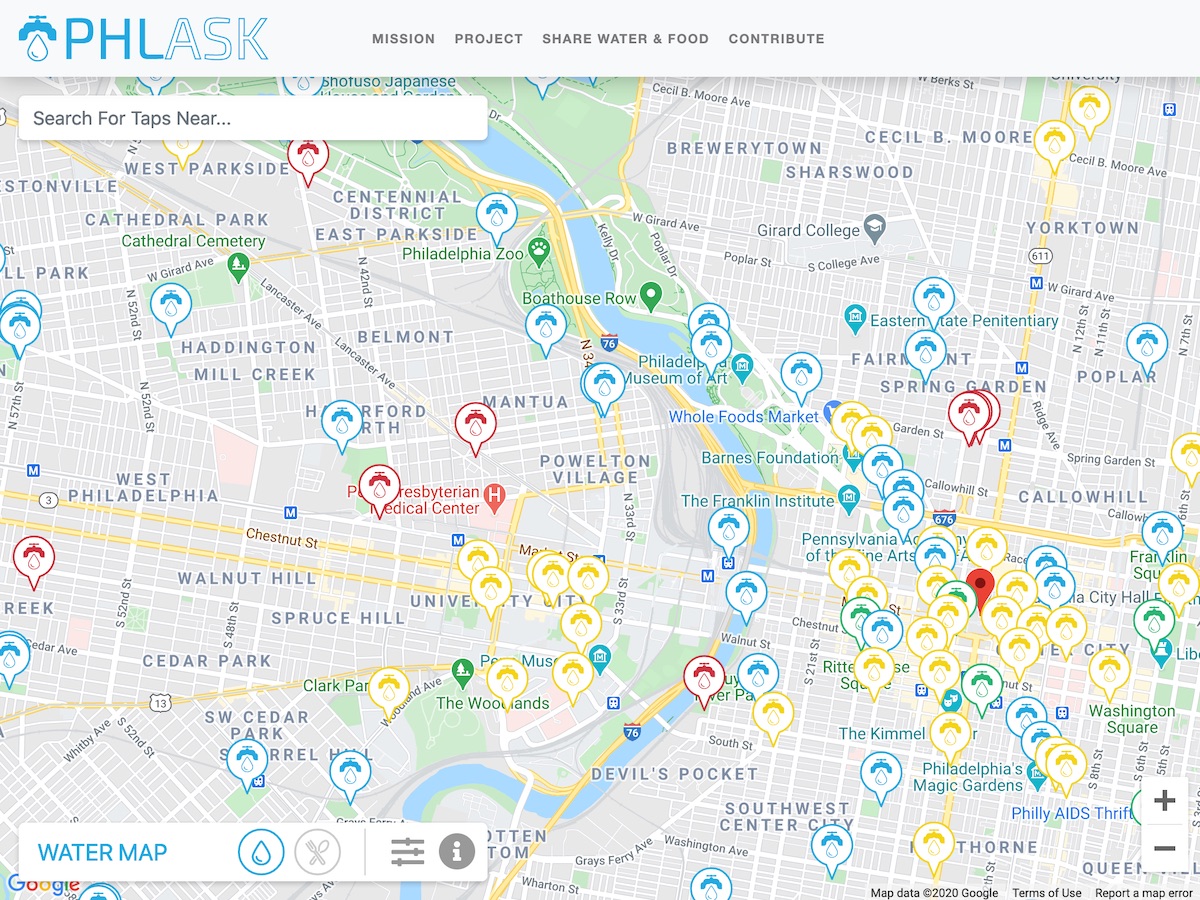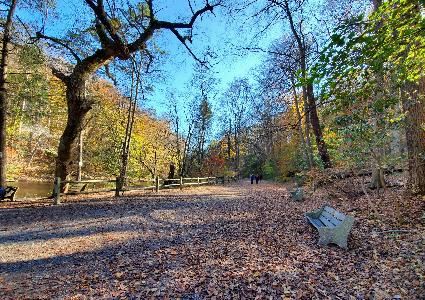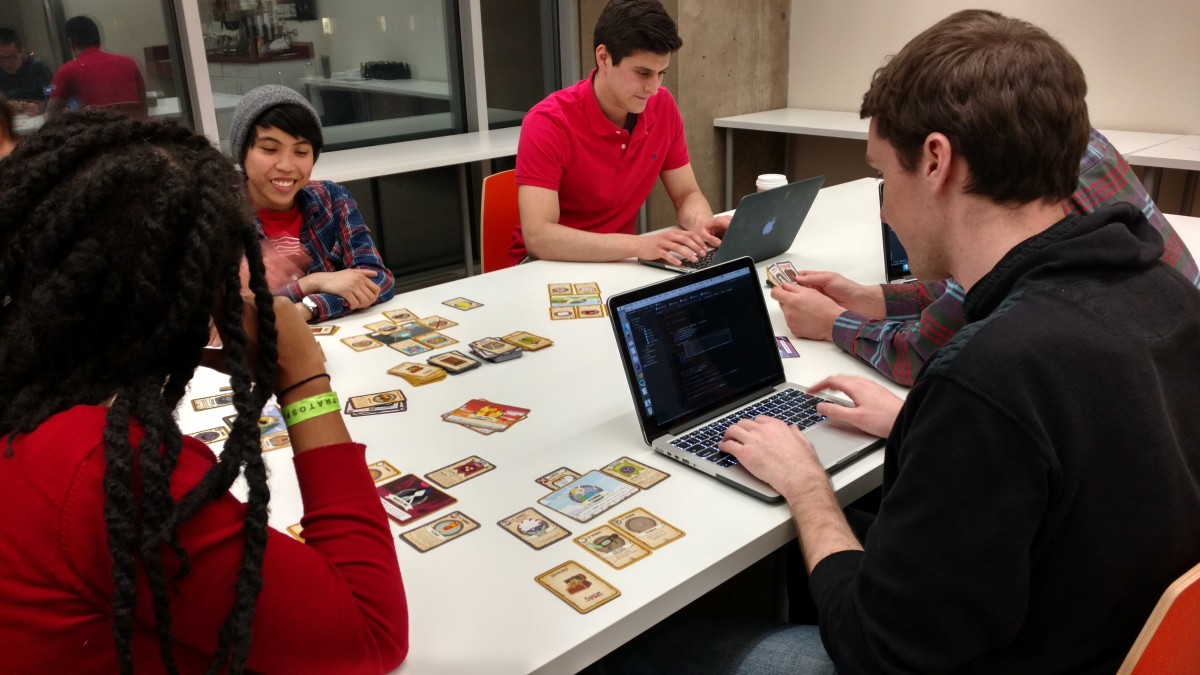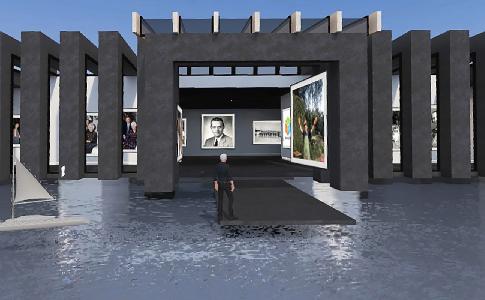Nearly 40% of Philadelphia residents drink bottled water at home — many because they don’t believe tap water is safe to drink, or they don’t like the taste. But for those unable to frequently purchase cases of water, the need exists for more sustainable options while on the go.
Through civic hacking group Code for Philly, a team of local software developers set out to address that need with PHLASK, a free app that allows users to see what places in the Philadelphia area offer free water to public.
When PHLASK team member Billy Hanafee first started work on the project in the summer of 2017, his goal was not to build an app. His focus was more on finding a way to change how the public thinks about public resources like municipal water.
“The journey to building this app was long and somewhat indirect as the intention was never just ‘to build an app,'” he told Technical.ly via email. “The reason the term ‘ecosystem‘ is included in the project [description] is to show that we are really trying to use technology to reset a system of social norms that foster more trust in shared institutions (like municipal water) and ameliorate more sustainable consumer behavior.”
Hanafee found plastic bottles as an understandable entry point in getting people to understand how their behaviors relate to sustainability. Single-use water bottles are made of plastic and quickly accumulate as waste after their use. He started the project as a way of encouraging people to ask — get it? — for water from freely available taps and help reduce the consumption of single-use plastic bottles.
Found a #PHLASKtap in Washington Square park. Much needed on a hot August day like today 🔥💧 pic.twitter.com/QOOnYp2JNR
— PHLASK (@PHLASKecosystem) August 22, 2020
The PHLASK team prioritized three guiding principles in its development process. Creating an app that promoted sharing was important and inspired by similar recent efforts to provide the public with free goods, such as community fridges that fight food insecurity. Building sustainability into behavior as well as building community were also two key goals of the process.
The PHLASK app allows users to view a map or “PHLASK ecosystem” of the Philadelphia area. On the map, icons indicate what locations provide users with free water taps. Users can click on icons for more information and pull up hours of operation and other key information of places that offer free water taps. The app updates information on a weekly basis.
To build out its PHLASK ecosystem, the PHLASK team worked with municipal departments like the Philadelphia Water Department to aggregate data on existing public water taps and also reached out to private businesses like local coffee shop chain La Colombe to become water-sharing points on the app’s map.
Since PHLASK first started out as a WordPress site in 2017, the development team has made significant upgrades to its tech stack. They currently use React, Redux and React Bootstrap for its frontend and Google Firebase for data storage. AWS S3 and Cloudfront provide its website hosting and Docker is used for its development tooling.
In response to COVID-19, the PHLASK team pivoted in its development process to allow its water-sharing PHLASK ecosystem to include food, too. The team already had plans to expand beyond water, Hanafee said — the pandemic just required it to move faster.
PHLASK officially launches Oct. 27. Here’s what the mobile app will look like in use:

(Courtesy image)

(Courtesy image)

(Courtesy image)

This editorial article is a part of Software Development Month of Technical.ly's editorial calendar.
Before you go...
Please consider supporting Technical.ly to keep our independent journalism strong. Unlike most business-focused media outlets, we don’t have a paywall. Instead, we count on your personal and organizational support.
Join our growing Slack community
Join 5,000 tech professionals and entrepreneurs in our community Slack today!





